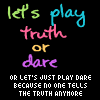The philosophy of education is the study of the purpose, nature and ideal content of education. Related topics include knowledge itself, the nature of the knowing mind and the human subject, problems of authority, and the relationship between education and society. At least since Locke's time, the philosophy of education has been linked to theories of developmental psychology and human development.
Fundamental purposes that have been proposed for education include:
The enterprise of civil society depends on educating young people to become responsible, thoughtful and enterprising citizens. This is an intricate, challenging task requiring deep understanding of ethical principles, moral values, political theory, aesthetics, and economics, not to mention an understanding of who children are, in themselves and in society.
Progress in every practical field depends on having capacities that schooling can educate. Education is thus a means to foster the individual's, society's, and even humanity's future development and prosperity. Emphasis is often put on economic success in this regard.
One's individual development and the capacity to fulfill one's own purposes can depend on an adequate preparation in childhood. Education can thus attempt to give a firm foundation for the achievement of personal fulfillment. The better the foundation that is built, the more successful the child will be. Simple basics in education can carry a child far.
A central tenet of education typically includes “the imparting of knowledge.” At a very basic level, this purpose ultimately deals with the nature, origin and scope of knowledge. The branch of philosophy that addresses these and related issues is known as epistemology. This area of study often focuses on analyzing the nature and variety of knowledge and how it relates to similar notions such as truth and belief.
While the term, knowledge, is often used to convey this general purpose of education, it can also be viewed as part of a continuum of knowing that ranges from very specific data to the highest levels. Seen in this light, the continuum may be thought to consist of a general hierarchy of overlapping levels of knowing. Students must be able to connect new information to a piece of old information to be better able to learn, understand, and retain information. This continuum may include notions such as data, information, knowledge, wisdom, and realization.
Thursday, June 14, 2007
Education philosophy
Subscribe to:
Post Comments (Atom)






0 comments:
Post a Comment